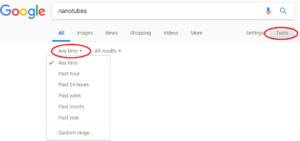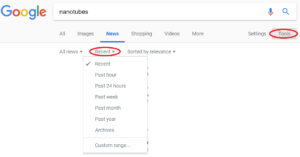 I have been watching the interest and consternation about the artificial intelligence chatbot ChatGPT and, yes, I have amused myself with silly queries. [“Write instructions on how to remove a peanut butter and jelly sandwich from a VCR player in the style of Dr. Seuss”; “Should I let my neighbor borrow my pet platypus?”; “Write a sonnet about psychedelics”]
I have been watching the interest and consternation about the artificial intelligence chatbot ChatGPT and, yes, I have amused myself with silly queries. [“Write instructions on how to remove a peanut butter and jelly sandwich from a VCR player in the style of Dr. Seuss”; “Should I let my neighbor borrow my pet platypus?”; “Write a sonnet about psychedelics”]
Why I don’t trust zero-click results
Google has succeeded because, like it or not, it tends to deliver better results than other search engines. And Google’s efforts to provide “zero-click” results with its Knowledge Panel, Featured Snippets and other rich results, have accustomed us to seeing the result in a easy-to-read box without needing to click through any of the results. As more of our queries are spoken rather than typed—by asking our smartphone or our smart speaker—we are relying on Google to select the one “best” answer to our question, since we’re not able to scroll through a list of results.
Many of these zero-click results are fine; if you ask Google for the population of Poughkeepsie, you’ll get a figure from 2017 US Census Bureau data (30,614 to be exact).
Would you take a free taxi?
 According to Google’s latest annual 10-K filing, over 85% of its revenue comes from advertising—yes, it’s actually listed as a risk factor. Seeing that, I recently landed on an analogy of what Google web search is like for professional researchers and info pros.
According to Google’s latest annual 10-K filing, over 85% of its revenue comes from advertising—yes, it’s actually listed as a risk factor. Seeing that, I recently landed on an analogy of what Google web search is like for professional researchers and info pros.
Imagine a taxi company that offers free rides anywhere you want to go. They’re practically ubiquitous, and a luxurious self-driving vehicle can be summoned on a moment’s notice. And did I mention that it’s free? How do they do it? Read More
Limiting Google News searches by time
At the Searcher Academy pre-conference workshop at Internet Librarian 2018 conference this year, I learned a clever trick from Greg Notess for conducting an advanced search in Google News.
 When you’re just using Google web search (e.g., Google.com), along the top of the search results page is a button labeled “Tools”; click it and you’ll get a pull-down menu labeled “Any time” that lets you limit your search to results updated within the past hour, past 24 hours, past week, and so on. It’s a nifty option and I frequently use it to limit my searches to the past two years.
When you’re just using Google web search (e.g., Google.com), along the top of the search results page is a button labeled “Tools”; click it and you’ll get a pull-down menu labeled “Any time” that lets you limit your search to results updated within the past hour, past 24 hours, past week, and so on. It’s a nifty option and I frequently use it to limit my searches to the past two years.
Google News doesn’t offer a similar option, so you can’t easily limit a search in Google News by date. If you type a query in the search box at the top of Google News, you may retrieve articles from weeks or months ago. As Greg pointed out, the way around this is to start your search in Google.com. In the search results page, click the link for News, then click Tools. Bingo – there’s a pull-down menu labeled “Recent” that lets you limit your search by date. I have been surprised by how many times this little trick has come in handy over the last couple of weeks. Thanks, Greg!
Is Google feeding confirmation bias?
 In its ongoing effort to answer the world’s questions (and sell ads), Google has been putting increased emphasis on its “featured snippets” – the little boxes of text extracted from whatever source Google has calculated to be most relevant. If I want to see whether my dogs can catch the flu, I can quickly see that, yes, it’s possible.
In its ongoing effort to answer the world’s questions (and sell ads), Google has been putting increased emphasis on its “featured snippets” – the little boxes of text extracted from whatever source Google has calculated to be most relevant. If I want to see whether my dogs can catch the flu, I can quickly see that, yes, it’s possible.
However, a recent Wall Street Journal article (“Google Has Picked an Answer for You—Too Bad It’s Often Wrong“) looked at the increased frequency of these quick answers that appear at the top of search results. (Note that these are not the Knowledge Panels, which are sourced from Wikipedia and other neutral sources.)
Mining the Ngram Viewer
Google Books Ngram Viewer is a nifty tool that analyzes all the text of all the books Google has digitized (over 25 million and counting) and lets you see the relative frequency of words going back to the 1600s.
What isn’t immediately obvious to most people is what you can do with Ngram Viewer — what kinds of insights you can glean from analyzing the text within books.
Do you trust that news?
 In its ongoing efforts to address the scourge of misleading and false news, Google recently announced a new feature that helps readers evaluate a news source they may not be familiar with. Now, when you search for a particular publication, the Knowledge Panel – that preformatted answers box that often appears at the top of search results – includes information about that publisher.
In its ongoing efforts to address the scourge of misleading and false news, Google recently announced a new feature that helps readers evaluate a news source they may not be familiar with. Now, when you search for a particular publication, the Knowledge Panel – that preformatted answers box that often appears at the top of search results – includes information about that publisher.
For Google, it’s location, location, location
I know… all Google is trying to do is help you get “better”, or at least more relevant, results from a search. And Google has assumed that you are your location — that where you are searching from really matters. Much of the time, that’s great. But for us professional searchers who search outside our own country, Google has just made a change that will significantly affect our search strategies.
Until now, if you wanted to focus your search on results from the UK and you were located in the US, you would go to the UK version of Google at google.co.uk. And yes, you’d always get different results than when you ran the identical search in google.com. However, according to a recent Google blog post, this trick will no longer work.
Super searching tips
 I just got back from Internet Librarian 2017 (in beautiful Monterey, CA — tough assignment). Among the insights I’ve brought back are:
I just got back from Internet Librarian 2017 (in beautiful Monterey, CA — tough assignment). Among the insights I’ve brought back are:
Google Image search is focused more on matching meaning than matching images. If you want to search for instances of an image (to watch for usage of your organization’s images or to find mentions of a chart or graph in a report or article, say), you’re better off using a reverse-image search tool like TinEye instead.
Using Google Trends for CI
On Nov. 25, the Wall Street Journal had an article about finding the best “door-buster” items for Black Friday and Thanksgiving weekend sales. A graphic accompanying the article caught my eye – it showed dramatic spikes in Google search activity for a particular brand of women’s boots every year at the end of November… just around Black Friday.
 This graph was generated by Google Trends and, while it wasn’t the focus of the article, it got me thinking about the usefulness of Google Trends in identifying marketing opportunities. Imagine what you would learn if you searched for your key products or services, or those of your competitors. If you learned that your customers were looking for information about a competing product during a predictable time period, wouldn’t you want to time your communications to be talking with your market right then?
This graph was generated by Google Trends and, while it wasn’t the focus of the article, it got me thinking about the usefulness of Google Trends in identifying marketing opportunities. Imagine what you would learn if you searched for your key products or services, or those of your competitors. If you learned that your customers were looking for information about a competing product during a predictable time period, wouldn’t you want to time your communications to be talking with your market right then?

